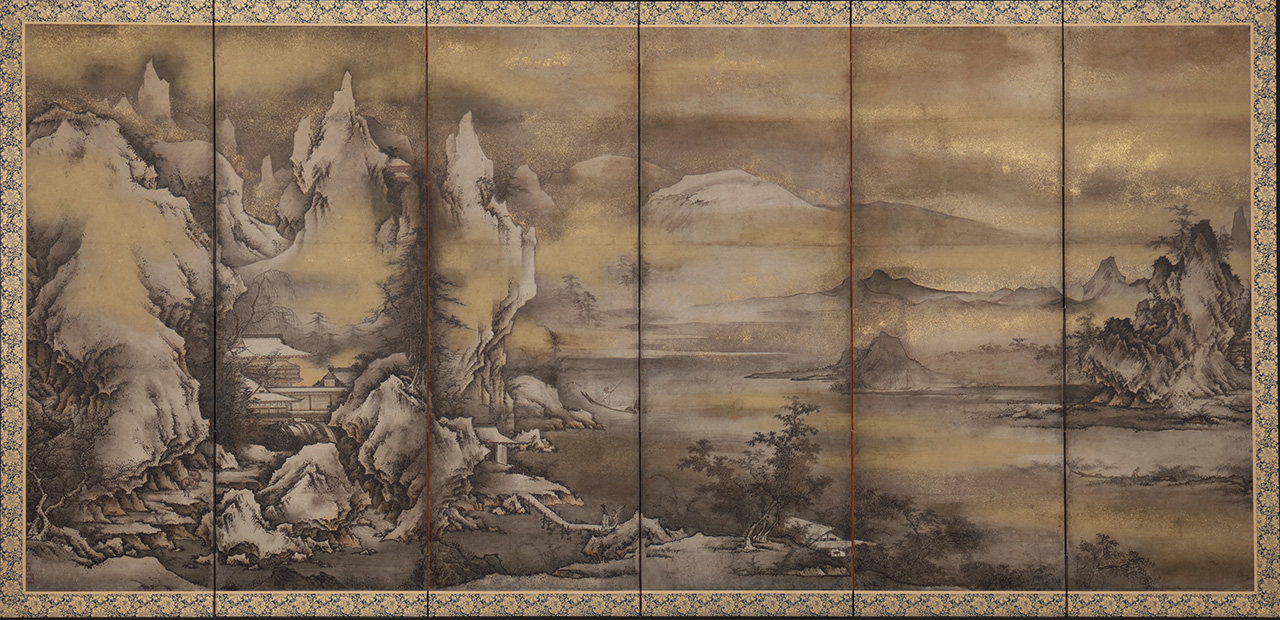Landscape of the Four Seasons
Landscape of the Four Seasons, approx. 1500–1573, by Shikibu Terutada (Japanese, active mid 1500s). Ink, light colors, and gold on paper. Asian Art Museum of San Francisco, The Avery Brundage Collection, B60D48+ and B60D49+. Photograph © Asian Art Museum of San Francisco.
These images are based on the high resolution facsimile produced by the Tsuzuri Project. Unauthorized copying, duplication, or transfer of these images is strictly prohibited.
DATA
- Artist:
- Shikibu Terutada
- Historical era:
- Muromachi(16th century)
- Material:
- printed, sprinkled gold on washi paper
- Medium:
- a pair of six-fold screens
- Theme:
- High Resolution Facsimile of Japanese Art Abroad
- Size:
- Each screen H153.7 × W325.1 cm
- Recipient:
- Kyoto National MuseumMAP
[Original]
- Current owner:
- San Francisco Asian Art Museum of San Francisco
- Material:
- ink, gold paint on washi paper
DESCRIPTION
The life of Shikibu Terutada had been covered in mystery, but the recent researches show that he
was active in the Kamakura area in Kanto, or eastern Japan in the mid-16th century. He is
thought to have established his own painting style through the study of the style of the
painting circles in Kamakura including Chuan Shinko and Shōkei in the-mid Muromachi period, and
later the one of Kanto branch of the Kano school.
These screens are considered to be the
most monumental works executed by Shikibu Terutada. In this painting, the subtle transition of
the four seasons can been seen in a panoramic landscape from right to left, which are
represented by plum tree, waterfalls, red leaves and snowy mountains. The world has distinctive
atmosphere created by the meticulous rendering of rocks and trees together with gold richly
applied onto the surface.


